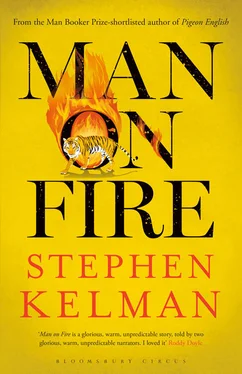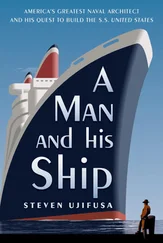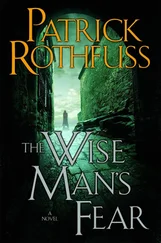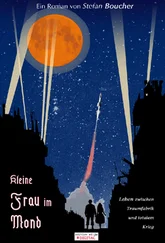The picture was gone too. Harshad had whitewash on his hands and the wall was scarred with wire-wool scratches. The heroic figure and the defeated snake had been buried. A sense of jeopardy stung the air, the turpentine smell of dreams given the boot.
Harshad fussed at some paperwork behind his desk, bowed to the books. He couldn’t look his vandalism in the eye. The glass of whisky at his side was full to the brim, a dare.
I asked him what had happened.
‘It was a mistake, I see this now. I do not wish to be reminded. My wife is gone. My friend is gone. The rain has taken him away. Twelve years I am knowing him. I see him every day. Now I will never see him again. I do not want to remember anymore. I do not want to remember anything. I never knew where he went at night. He is happy where he is now but I am in great pain. If I look at this picture every day for one thousand years it will not bring back the things I have lost. I just want to forget them.’
Amrita came out from the back room, clutching a whisky bottle in each hand. She held them up for her father, a prideless catch. ‘This will not make you forget. It will only spoil their memory.’ She let the bottles go. They smashed on the ground.
Harshad flinched. He looked for somewhere to run to but he was stuck in a moment of grim revelation.
‘You are a foolish man,’ Amrita declared.
‘I am a lonely man,’ he said. ‘I am old and tired and I have run out of dreams this morning. They are no good to me. Go now. I will clear up this mess. Go.’
Stubbornly Amrita went to pick up a shard from the broken bottles but her father shooed her away. She stormed out and in her absence Harshad let himself weep, a brief appalling rush of pain that leapt out from somewhere deep down and broke on the air like the snap of a bone. When he looked up it was over. He fetched the mop from out back and began dabbing at the broken glass. My offer of help was dismissed. I stepped aside.
I resolved finally to keep to my pledge of sobriety. I’d never touch another drink again.
‘It was beautiful,’ I said. ‘The picture, I liked it.’
‘Foolish man,’ Harshad murmured. He pushed the mop around until it was sugared with glass.
Ellen turned away when I tried to kiss her cheek and swayed past me into the room. It was identical to the room I’d had. The same brand of loneliness dusted its surfaces. The loneliness of unaccompanied travel and clothes that had seen better days. She didn’t belong here. She belonged where there was comfort and the climate was temperate. She’d never got on well with the heat. Her face was red and her breath came loud and shallow. She slumped onto the bed. I asked after her feet and her blood pressure.
I hadn’t helped with either.
I couldn’t say it, but I was proud of how far she’d come to put a spanner in my works. It couldn’t have been easy, the travelling. If she’d fallen I didn’t want to know. The image of it would be too horrifying to gloss over.
I felt my bad cells tearing round inside me, and I knew I wasn’t going to recover. Bibhuti’s methods weren’t working. There was still pain. You hadn’t bought my argument for mercy. Ellen wouldn’t either. My impatience to live was a betrayal of her. She was too slow and I couldn’t take her with me.
‘If you want to wait for me you can,’ I said. ‘I’ll come back with you when it’s over.’
She shook her head at me. She told me I was going to make up for all the trouble I’d caused. I was going to put things right.
I tried not to touch her while she slept. The hairs on my forearms shivered when she moved. When she started snoring I cried with gladness. In the darkness she was a ship to sail away on and an anchor to my name. Her nightdress was faded from over-washing and she was the only woman I’d loved.
The plaster came off and I hit Bibhuti again. I carried on hitting him until my arm got tired and I had to stop. I stayed away from the bad leg, mixed up my targets to avoid another break. I made his back shine red. Jolly Boy timed me and touched the marks I made.
‘Twenty-two seconds!’ he yelled.
Another bat lay broken at my feet. My hands trembled with something elemental as the rain fell around us.
I hit him. I stretched and swung and every time a bat broke I felt proud. Out in the scorching rain or under the cover of concrete I hit him and hit him and hit him. The neighbours gathered to watch, huddled under their eaves, yelled to us from across the street of the latest landslides and blackouts. Roars went up when another bat was broken. Children were dancing on water, the roads were rivers and we were marooned on an island of splinters. The world twisted under our feet with every collision and we widened our stances to keep from slipping. We kept going until I had no more fight left in me.
I hit him. I got it down to two strikes for a break, across his back. His joy was absolute, a force that rushed in from somewhere hidden and buried our differences. He took everything I threw at him. He was real and alive and he liked it.
I was starting to believe in something, I could feel it growing in the places where my old complaints used to grind. Nature, or Bibhuti, or my body and the things it could do in its last hurrah. My own human fire. I don’t know. But something fell with the rain in that sunken courtyard that made me dominant over the beasts of the earth. I pushed the sky away and you with it.
The nurse refills Bibhuti’s drip and he recoils when the morphine hits. His lips part to release a startled breath. Everyone jumps. His wife reaches for his shoulder where a break in the plaster exposes it and tries to shake him awake. Bibhuti flops around inside his casing and Jolly Boy lets out a cry. The nurse coaxes his wife away but she shrugs her off. She thumbs Bibhuti’s eyelids open. The eyes beneath are blind.
She jabbers something in her language and shakes him again. She shovels a hand under his back and tries to lift him. The plaster creaks and more of him splits. The nurse cuts in and prises his wife’s hands clear. Bibhuti falls back onto the bed and lies still.
He sleeps, relentlessly.
His wife sits back down by his side, her face sheened with sweat from the effort of wanting him back.
‘He’s coming back, I can see it,’ Ellen tells her. ‘Any time now.’
‘It’s like an engine starting from cold,’ I tell Jolly Boy, ‘he just needs a few goes, that’s all. He’ll get there.’
Jolly Boy is frozen at the window. Not man enough to grind his heels into the days with the weight needed to change their course, he has stood and watched and hoped boyfully, waiting on tiptoes for the walls of his world to cave in. The room smells of his childhood’s fading, the fat-flowers that bloom on forgotten chocolate.
His father wired up to a painkiller gives me a glimpse of what awaits me. Tubes sticking out of me keeping me just alive enough to suck the air out of a room, to ruin it for everyone else who still has plans and places to be. Too asleep to feel the loss of life while everyone else gets to watch it drip away. That’s if the painkillers work. What if they don’t and I feel every scratch? What if the memories hurt on their way out? That’s a lot of hurt.
I don’t tell Ellen how sick I’m feeling. I don’t tell Bibhuti’s wife either. We’re not talking anymore. I’d tell her I was dying again if I thought it would console her. But she’s too good at being human to take any pleasure in it. She tries to stop Jolly Boy following me out the door but he’s set on getting as far away from his father’s zombie show as his feet can take him.
We find Zubin in the orderlies’ room, playing Paplu with the night-shift mortuary wallahs. We wait until the hand’s played out. His nemesis is a moonfaced man who wears Shiva’s trident in fraying ink on the inside of his wrist. He touches it for luck before each draw. The luck rubs off more often than not. Moonface calls rummy and slaps his cards down on the catering-size ghee drum they use as a table. The other players curse him. Zubin shakes the mystery from his hair and asks what he can do for me.
Читать дальше












